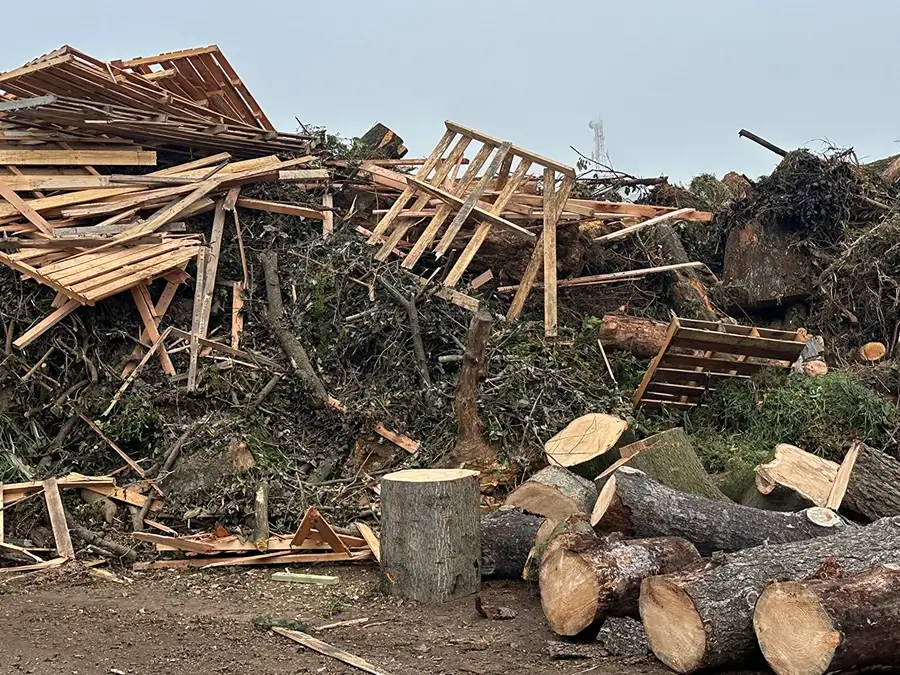The Problem
Maryland is not a large state but it has a great deal of geographic and demographic diversity contained within its oddly shaped boundaries. It stretches from the ocean to the Appalachian mountains with small rural farming communities to dense urban areas. Its urban and rural forests also host a wide range of hard and softwoods. However, despite the strong investment in tree canopy in many Maryland counties, there is no supply chain set up to absorb the large volume of wood coming down from development, disease or arboricultural work in the urban and suburban areas.
Our Solution
UWE won a wood utilization grant from the Maryland Department of Natural Resources (MD DNR) in 2024 entitled “A Full Circle Economy for Fallen Wood: Assessing a Business Case for Wood Utilization in Rural, Suburban & Urban Centers in Maryland.” The grant provides funding for UWE to explore several different geographical areas within the state of Maryland where Maryland stakeholders can support a self-sustaining and revenue-generating supply chain for locally produced wood products.
The products to be produced at a wood upcycling campus will include biochar, lumber and compost but bioenergy options are also being explored. UWE is building the best business case(s) and will work with Maryland stakeholders to approach funders to develop and operationalize upcycling campuses and new supply chain solutions for Maryland communities.

